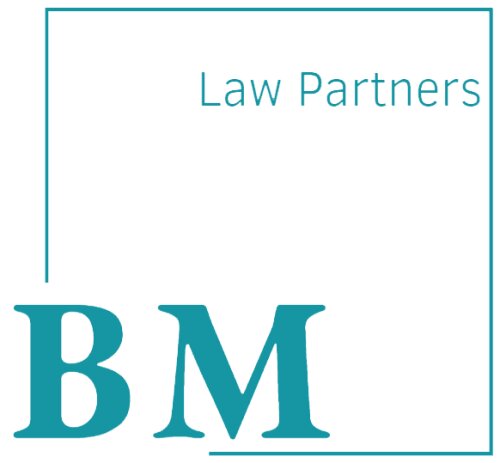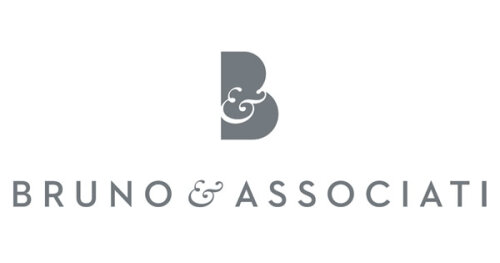Best Admiralty & Maritime Lawyers in Milan
Share your needs with us, get contacted by law firms.
Free. Takes 2 min.
List of the best lawyers in Milan, Italy
About Admiralty & Maritime Law in Milan, Italy
Admiralty and Maritime Law, which governs nautical matters and private maritime disputes, plays a crucial role in Italy, a country with extensive coastlines and a rich maritime heritage. As the country's industrial and financial hub, Milan serves as a significant center for legal services, including those pertaining to Admiralty and Maritime Law. Although Milan is not a coastal city, many law firms in Milan specialize in providing legal services relevant to maritime industries, including shipping companies, insurers, and maritime personnel. This legal field encompasses issues such as shipping and navigation, marine commerce, and injuries occurring on navigable waters.
Why You May Need a Lawyer
There are several situations where individuals or companies might require legal help in the field of Admiralty & Maritime:
- Ownership or operation of sea vessels, which may involve registration, sale, or charter agreements.
- Incidents of personal injury or accidents aboard ships, involving crew or passengers.
- Disputes regarding shipping contracts, cargo claims, or breach of charter agreements.
- Pollution incidents or environmental regulations related to maritime operations.
- Insurance claims for maritime assets and liabilities.
- Legal compliance with Italian and EU maritime laws and regulations for shipping companies.
Local Laws Overview
Italian Admiralty & Maritime Law is primarily derived from international treaties and conventions, as well as domestic legislation like the Italian Navigation Code. Key aspects of local maritime laws in Milan include:
- The Italian Navigation Code, which covers ship registration, maritime liens, and obligations of shipowners.
- Laws related to the safety of navigation and the prevention of marine pollution, aligning with EU directives and international conventions.
- Regulations concerning maritime labor rights, including working conditions and welfare of seafarers.
- Rules governing marine insurance and claims handling procedures.
Frequently Asked Questions
What is the scope of Admiralty & Maritime Law in Italy?
Admiralty & Maritime Law in Italy covers a wide range of issues, including navigation, maritime commerce, seafarers' rights, and marine environmental protection. It is built on international law, domestic regulations, and customs.
Do I need a special license to operate a boat in Italy?
Yes, depending on the size and type of vessel, you may need a special license to operate a boat in Italy. It is essential to verify the specific requirements that apply to your situation.
What steps should I take if there is an accident at sea?
If there is an accident at sea, it is crucial to prioritize safety, report the incident to the relevant maritime authorities, and seek legal counsel to understand your rights and liabilities.
Are there laws specific to cruise ships in Italy?
Yes, cruise ships must comply with international standards and Italian laws related to safety, environmental protection, and passenger rights. Specific regulations ensure operational and safety standards are met.
How does Italian law protect maritime workers?
Italian law and international conventions such as the Maritime Labour Convention (MLC) provide comprehensive protections for maritime workers, including contracts, working conditions, and welfare benefits.
Can I bring a legal claim in an Italian court for a maritime dispute?
Yes, Italian courts can hear maritime disputes, provided that they have jurisdiction. It is advisable to consult a lawyer to determine the best forum for your claim.
What should I do if my cargo is damaged during shipping?
If your cargo is damaged, report the damage to the carrier and your insurer immediately. Document the damage thoroughly and seek legal assistance to pursue a claim if necessary.
What is the role of the Italian Coast Guard?
The Italian Coast Guard is responsible for maritime safety, law enforcement, environmental protection, and search and rescue operations. They play a crucial role in monitoring and enforcing maritime laws.
How does Italy regulate marine pollution and environmental protection?
Italy implements international and EU legislation aimed at reducing marine pollution. These regulations apply to ship emissions, waste discharge, and the prevention of oil spills, ensuring clean waterways.
What are maritime liens, and how are they enforced in Italy?
Maritime liens are claims that can be made against a vessel for debts related to its operation. In Italy, these liens are enforced through court actions that may involve the arrest and sale of the vessel.
Additional Resources
For further assistance and information, consider reaching out to the following:
- Italian Maritime Association: Provides resources and networking for maritime professionals.
- Italian Coast Guard: Offers safety information and regulatory guidance.
- Italian Ministry of Infrastructure and Transport: Oversees maritime policy and infrastructure.
- International Chamber of Shipping (ICS): For international regulations impacting Italian operators.
Next Steps
If you are seeking legal assistance in Admiralty & Maritime Law in Milan, Italy, consider the following steps:
- Identify your specific legal issue and gather relevant documentation and evidence.
- Research and contact a specialized maritime law firm in Milan for professional guidance.
- Schedule a consultation to discuss your case and gain a thorough understanding of your legal options.
- Ensure clear communication with your legal counsel and follow their advice to protect your interests.
- Stay informed about changes in maritime law that may affect your case or operations in the future.
Lawzana helps you find the best lawyers and law firms in Milan through a curated and pre-screened list of qualified legal professionals. Our platform offers rankings and detailed profiles of attorneys and law firms, allowing you to compare based on practice areas, including Admiralty & Maritime, experience, and client feedback.
Each profile includes a description of the firm's areas of practice, client reviews, team members and partners, year of establishment, spoken languages, office locations, contact information, social media presence, and any published articles or resources. Most firms on our platform speak English and are experienced in both local and international legal matters.
Get a quote from top-rated law firms in Milan, Italy — quickly, securely, and without unnecessary hassle.
Disclaimer:
The information provided on this page is for general informational purposes only and does not constitute legal advice. While we strive to ensure the accuracy and relevance of the content, legal information may change over time, and interpretations of the law can vary. You should always consult with a qualified legal professional for advice specific to your situation.
We disclaim all liability for actions taken or not taken based on the content of this page. If you believe any information is incorrect or outdated, please contact us, and we will review and update it where appropriate.















